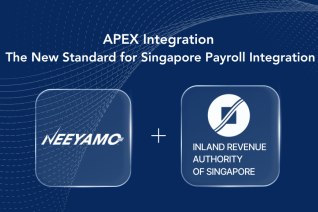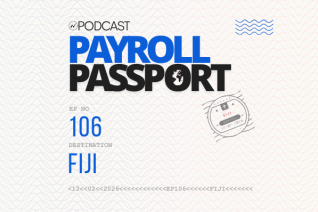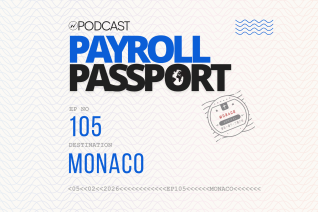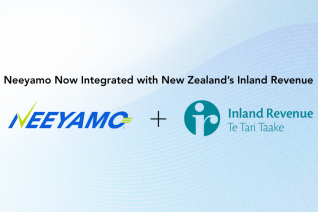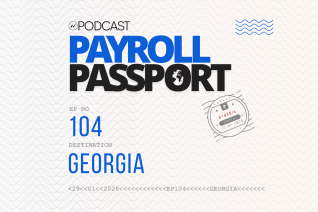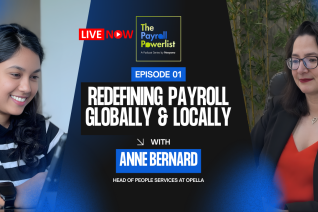Country Spotlight: Employer of Record in Brazil

From the buzz of Carnival to the beats of samba, Brazil captures the imagination of the world. But beyond its vibrant culture and stunning landscapes, Brazil is fast becoming a magnet for global businesses. With a large, skilled workforce and a rapidly evolving tech scene, it’s no wonder that companies want in. The catch? Hiring in Brazil comes with its fair share of red tape.
Labor Market Snapshot – April 2025
Brazil’s unemployment rate stood at 6.6% in the three months ending April 2025, slightly up from 6.5% in the previous quarter but below market expectations of 6.9%. The number of unemployed remained steady at 7.3 million, while the employed population held firm at around 103.3 million. The labor force participation rate remained stable, with 66.8 million individuals outside the labor market. Real income also remained consistent during this period, averaging R$3,426.
For companies looking to tap into Brazil’s talent pool without the headaches of entity setup and compliance hurdles, partnering with an EOR is a smart and strategic move. You don't need to spend months setting up a local entity or navigating complex labor laws on your own. That's where an Employer of Record (EOR) can help.
What Is an Employer of Record (EOR), and Why Use One in Brazil?
An Employer of Record is a service provider that legally employs workers on your behalf. While your company manages the employee’s tasks, the EOR takes care of all the behind-the-scenes requirements, contracts, payroll, taxes, and compliance.
This is especially useful in Brazil, where employment laws are detailed and regularly updated. An EOR helps you hire quickly and safely, without needing to open a local office or risk legal missteps.
ALSO READ | Brazil: A Guideline to Payroll and Employer of Record
Essential Considerations for Hiring Employees in Brazil
Before bringing talent on board in Brazil, it’s important to understand how the country’s labor system works and what legal obligations come with it:
- Employment contracts must follow specific legal standards. Brazil’s Consolidation of Labor Laws (CLT) outlines strict rules for employment agreements. These include job responsibilities, compensation, benefits, working hours, and clear termination terms, all of which must be documented and comply with local laws.
- The 13th-month salary (Decimo Terceiro) is required by law. Each employee in Brazil is entitled to an additional month’s salary paid out at the end of the year. This bonus must be accounted for in your annual compensation planning.
- Social security and severance contributions add up. In Brazil, employees pay progressive social security contributions ranging from 7.5% to 14% on monthly salaries up to R$7,786.02, with a cap of R$908.85. Employers contribute a flat 20% or 22.5%, plus additional charges based on their industry sector. Employers are responsible for paying into Brazil's social security system, the Instituto Nacional do Seguro Social (INSS), and the severance fund, Fundo de Garantia do Tempo de Serviço (FGTS). The employer must pay an additional 40% of the total FGTS balance as a penalty for the dismissal. These contributions significantly increase the overall cost of employment.
- Payroll involves more than just salaries. Brazilian payroll includes not just base wages but also vacation bonuses, transportation and meal stipends, and statutory paid time off. Each component must be calculated correctly and paid on time.
- Minimum wage rates must be observed. As of January 1, 2025, the national minimum wage is R$1,518.00 monthly. Failing to meet this requirement could result in penalties or labor disputes.
- Tax updates can impact payroll deductions. With the new exemption threshold now at R$3,036.00 per month, employers need to stay updated to avoid incorrect tax withholdings and payroll miscalculations.
Understanding these rules is key to avoiding fines, penalties, or employee dissatisfaction. Partnering with an EOR ensures these requirements are met accurately and consistently, giving you peace of mind as you build your team in Brazil.
Hiring Expats in Brazil
Hiring foreign nationals in Brazil is subject to a specific set of immigration and labor requirements. Employers who want to bring in international talent must apply for the appropriate work visa through Brazil’s Ministry of Labor and Employment. Most commonly, this is a temporary or permanent work visa that requires pre-approval of a work contract and documentation.
Here are the most common types of work permits and visas:
- Temporary Work Visa (Visto Temporário)(VITEM): Ideal for short-term assignments, this visa is typically valid for up to two years. It allows foreign workers to take on temporary roles in Brazil, provided the employer can justify the need for international expertise.
- Permanent Work Visa: Suited for individuals hired into long-term or indefinite roles. This visa requires a more thorough review process and is often granted when the foreign national is assuming a key strategic position within the organization.
- Mercosur Visa: For citizens of Mercosur countries (such as Argentina, Paraguay, and Uruguay), the Mercosur visa offers a simplified path to work and reside in Brazil. It promotes regional labor mobility and can be an effective option for hiring from neighboring countries.
Work hours are limited in Brazil to eight hours per day and 44 hours per week, unless otherwise specified in an employment agreement or a collective bargaining agreement (which may stipulate fewer hours per week).
Employers must also demonstrate that the job could not be filled locally and provide justifications for hiring a foreign national. Once approved, the employer sponsors the visa, and the expatriate is permitted to work legally in Brazil.
Like Brazilian citizens, expatriates are subject to local labor laws, including income tax, social security contributions (INSS), and the FGTS severance fund. Employers are responsible for making these deductions and ensuring compliance with local tax and employment regulations.
Data protection is another crucial area. Employers must comply with Brazil’s data privacy law (LGPD), which requires the secure handling of personal data, including that of expatriate employees. Organizations must implement clear privacy policies, limit access to sensitive information, and ensure all data is processed lawfully.
ALSO READ | Country Spotlight: Payroll in Brazil
Non-compliance with labor or immigration laws can result in visa cancellation, financial penalties, or legal disputes. Having an EOR manage these processes helps ensure that hiring expatriates is a smooth, compliant, and efficient process. A specific set of immigration and labor requirements. Employers who want to bring in international talent must apply for the appropriate work visa through Brazil’s Ministry of Labor and Employment. Most commonly, this is a temporary or permanent work visa that requires pre-approval of a work contract and documentation.
Employers must also demonstrate that the job could not be filled locally and provide justifications for hiring a foreign national. Once approved, the employer sponsors the visa, and the expatriate is permitted to work legally in Brazil.
Like Brazilian citizens, expatriates are subject to local labor laws, including income tax, social security contributions (INSS), and the FGTS severance fund. Employers are responsible for making these deductions and ensuring compliance with local tax and employment regulations.
Data protection is another crucial area. Employers must comply with Brazil’s data privacy law (LGPD), which requires secure handling of personal data, including expatriate employee records. Organizations must implement clear privacy policies, limit access to sensitive information, and ensure all data is processed lawfully.
Non-compliance with labor or immigration laws can result in visa cancellation, financial penalties, or legal disputes. Having an EOR manage these processes helps ensure that hiring expatriates is smooth, compliant, and efficient.
Why choose Neeyamo for your EOR needs?
Neeyamo helps you hire people in 150+ countries, including Brazil. We take the hassle out of global hiring so you can focus on your business. Still not sure? Here’s why we’re a great fit:
Worried about legal stuff? We’ve got compliance covered.
Worried about costs? You don’t need to open a local entity—we’ll handle it all.
Worried about mistakes? We help reduce risks and avoid fines.
Too many HR tasks? From day one to the last day, we’ve got it handled.
Need help? Our support team is here for you 24/7 in 50+ languages.
Neeyamo? Your key to effortless global expansion!
Latest Resources
Stay informed with latest updates
If you're curious and have a thirst for knowledge pertaining to the HR, payroll, and EOR universe, don't miss out on subscribing to our resources.




